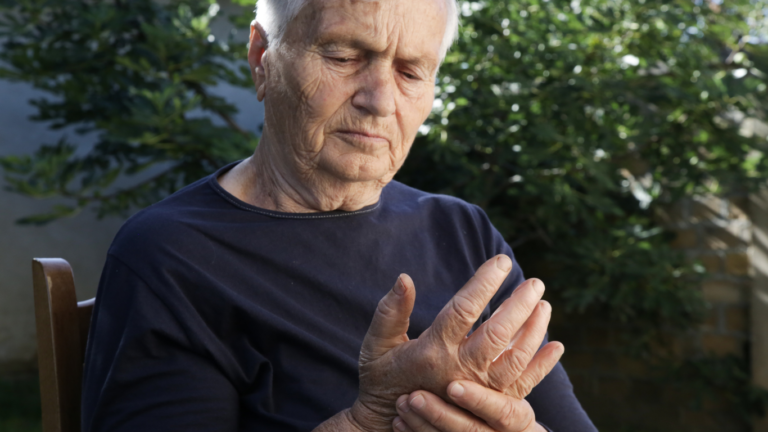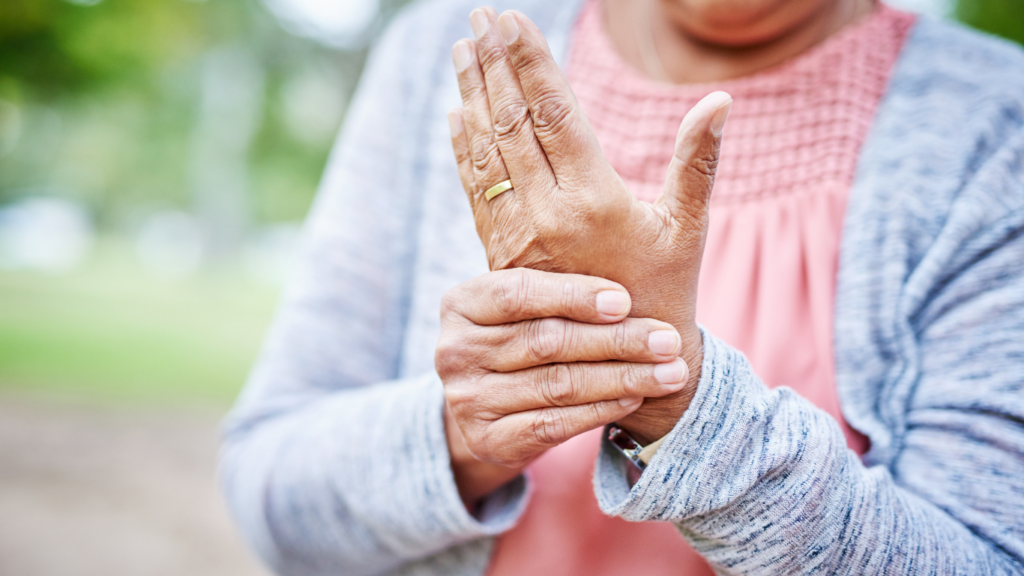05 May Arthritis Awareness Month
Arthritis Awareness Month

his annual observance seeks to educate people about the impact of arthritis on individuals and society and to encourage advocacy and support for people living with the disease.
Arthritis is an umbrella term that refers to over 100 different types of joint inflammation and related conditions, causing pain, stiffness, and swelling in the joints. In severe cases, it can lead to disability and decreased quality of life.
May is recognized as Arthritis Awareness Month, a time dedicated to increasing public awareness of arthritis and related conditions. This annual observance seeks to educate people about the impact of arthritis on individuals and society and to encourage advocacy and support for people living with the disease.
What are the most Common Forms of Arthritis?
1. Osteoarthritis: This is the most common form of arthritis and occurs when the cartilage in the joints wears down over time, causing pain and stiffness. It most commonly affects the hands, hips, knees, and spine. Symptoms include pain, stiffness, tenderness, and reduced range of motion in the affected joint.
2. Rheumatoid arthritis: This is an autoimmune disorder that causes inflammation in the joints. It can affect any joint in the body and is often accompanied by fatigue, fever, and weight loss. Symptoms include pain, swelling, and stiffness in the affected joint, as well as redness and warmth.

3. Gout: This form of arthritis is caused by a buildup of uric acid in the joints, leading to intense pain and swelling. It most commonly affects the big toe, but can also affect other joints, such as the ankle or knee. Symptoms include sudden and severe pain, swelling, redness, and warmth in the affected joint.
4. Psoriatic arthritis: This is a type of arthritis that occurs in people with psoriasis, a skin condition that causes red, scaly patches on the skin. It can affect any joint in the body and may cause pain, stiffness, and swelling in the affected joint. Other symptoms may include nail changes, eye inflammation, and fatigue.
5. Juvenile idiopathic arthritis: This is a form of arthritis that occurs in children under the age of 16. It can cause joint pain, stiffness, and swelling, as well as fever, rash, and eye inflammation.
What Are the Signs and Symptoms of Arthritis?
The signs and symptoms of arthritis can vary depending on the type of arthritis, but some common symptoms may include:
1. Joint pain: This is one of the most common symptoms of arthritis. It may be described as a dull ache or a sharp, shooting pain. The pain may be constant or intermittent and may worsen with movement or activity.
2. Joint stiffness: Joint stiffness is another common symptom of arthritis. It may be most noticeable in the morning or after a period of inactivity. Stiffness may make it difficult to move the affected joint or to perform certain activities.
3. Joint swelling: Arthritis can cause the joints to become swollen and inflamed. The swelling may be mild or severe and may be accompanied by warmth and redness in the affected joint.
4. Reduced range of motion: Arthritis can limit the range of motion in the affected joint. This may make it difficult to perform certain tasks or activities, such as bending or reaching.
5. Fatigue: Arthritis can cause fatigue and a general feeling of being unwell. This may be due to the inflammation in the body or the chronic pain associated with the condition.
6. Fever: In some cases, arthritis can cause a low-grade fever. This may be a sign of an autoimmune type of arthritis, such as rheumatoid arthritis.
How is Arthritis Treated?
The signs and symptoms of arthritis can vary depending on the type of arthritis, but some common symptoms may include:
1. Medications: There are a variety of medications that may be used to treat arthritis, including nonsteroidal anti-inflammatory drugs (NSAIDs), corticosteroids, and disease-modifying antirheumatic drugs (DMARDs). These medications may help to reduce pain, inflammation, and joint damage.
2. Physical therapy: Physical therapy may help to improve joint flexibility, strength, and range of motion. This may include exercises to improve muscle strength, stretches to improve flexibility, and techniques to reduce pain and inflammation.
3. Assistive devices: Assistive devices, such as braces, canes, or splints, may help to support the affected joint and improve mobility.
4. Surgery: In some cases, surgery may be necessary to repair or replace damaged joints. This may include procedures such as joint replacement surgery or joint fusion.
In addition to promoting early diagnosis and treatment, Arthritis Awareness Month also seeks to highlight the importance of self-management strategies for people living with arthritis. These strategies may include exercise, weight management, stress reduction, and medication management. By incorporating these strategies into their daily lives, people with arthritis can improve their overall health and quality of life.
As healthcare providers caring for those suffering from arthritis, we are proud to provide the latest treatments and raise awareness of this disease to help people that may be struggling with arthritis find answers and relief for the improvement of their quality of life.
Here at Pure Infusion Suites, we put our patients first. We offer flexible scheduling, co-pay assistance, and other financial aid programs, as well as private suites equipped with recliners, flatscreen TVs, and snacks and drinks for you and your loved ones to enjoy.
Pure Infusion Suites currently has locations in Arizona, California, Colorado, Florida, Georgia, Idaho, Montana, Nevada, New Mexico, Oregon, Utah, and Washington. Our founders created Pure Infusion Suites to make the infusion process comfortable, streamlined, and affordable.
Our expertly trained staff will be with you throughout the infusion process to ensure easy referrals and insurance authorizations and reduce the cost of your infusion where we can.
At Pure Infusion Suites, you will skip the long lines at the hospital and be provided with your suite, where you can enjoy your favorite shows, snacks, and food during your infusion appointment. If you have been prescribed an infusion for your arthritis and are looking for a patient-focused infusion experience, call us at 855.550.3358
Sorry, the comment form is closed at this time.